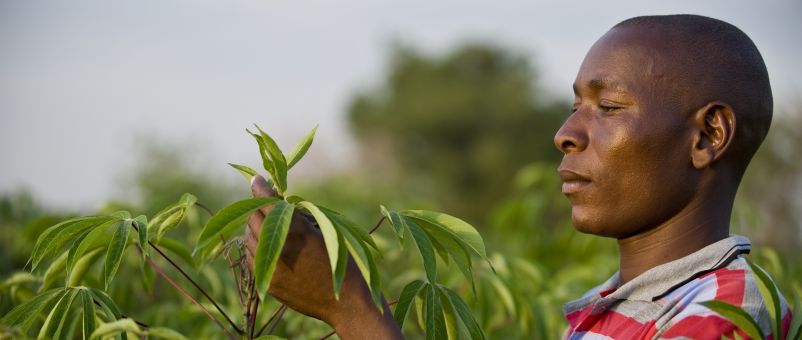- About
- Topics
- Story
- In-Depth
- Picks
- Opinion
- News
- Donate
- Signup for our newsletterOur Editors' Best Picks.Send
Read, Debate: Engage.
| August 15, 2018 | |
|---|---|
| topic: | Security |
| tags: | #vanilla, #Madagascar |
| located: | Madagascar |
| by: | Bob Koigi |
Madagascar is one of the largest producers of Vanilla, accounting for 80 per cent of global production. Recently there has been growing interest of the crop in the food industry, aromatherapy and fragrance sectors. But as global connoisseurs continue discovering more uses for vanilla, the prices continue to rise from $60 a kilo a few years ago to between $600 and $750 at the moment with the crop now being equivalent to gold in worth.
But this demand has created a crisis of epidemic proportions in Madagascar with farmers now having to contend with traders camping at their fields bargaining for the best price of the vanilla pods. The price hike has also birthed a new gang that descends on farms, harvesting the pods at night and selling them to the top bidder. So serious is the crisis that on average five people are killed each week. The thieves have at times been daring enough to even warn farmers of the day they would raid their plantations. Farmers, helpless and angered by lack of government’s support in rescuing the situation, have taken matters in their own hands and sought to protect themselves. They sleep on their farms, watching their crops while others are ready to spend a fortune to hire private security personnel. Others have gone to the extreme by hiding their harvests under their mattresses. When the farmers started ganging up to fight the thieves, they became brazen. Any thief caught is to be beaten, stoned and burnt alive. Others are hacked to death in the full gaze of the public to send a warning.
To mitigate against these risks and as more middlemen camp at the fields, farmers are forced to harvest the pods before they reach maturity which has affected quality. They harvest them at seven or eight months. In order to get the distinctive perfume, the pods must be harvested at maturity, which is usually after nine months. Premature harvesting doesn’t have the unique perfume which manifests in the last month of maturity.
‘The pent up demand has fuelled this desire to harvest early. These farmers cannot meet the demand and then they are receiving all this pressure from international buyers to sell. That explains why things are crazy,’ said Raphael Tojofitiavana who acts as a link between buyers and the farmers. He adds that as a result of such unprecedented demand, farmers have gained competitive bargaining power and now dictate the prices. ‘I have had situations where a buyer will tell me a quote for their price. I discuss it with the farmer and agree. But when I go to pick them the next day the farmer demands triple the initial amount. The buyer has no choice but to comply,’ he adds.
Local politicians have been involved in the trade, and have been accused of working with organised gangs to terrorise farmers and steal from them. The elaborate network involves supplying the gangs with vehicles to ferry the stolen pods at night which are then supplied to a location where international cartels then pick them up for export.
Part of the runaway vanilla related crime that is now threatening the future of the crop in the country is weak regulation despite vanilla contributing eight percent of the country’s GDP. Any buyer can easily walk into the villages, bargain for prices or enlist the services of middlemen, agree on the price and ship their produce from the farms just like that. As a result, the government loses millions of dollars each year in taxes.
Yet the situation doesn’t seem likely to improve any time soon. The pent up global demand seems to be on steroids yet changing climatic conditions and the poor harvesting techniques (the pods are harvested manually) will only make the commodity more scarce. The scarcity is bound to fuel competition which inevitably will spark more violence according to observers. “We are already experiencing more demand than we did three months ago yet the acreage under production isn’t growing. What this means is that the attacks will be more vicious as cartels seek to outsmart each other,” said Raphael.
By copying the embed code below, you agree to adhere to our republishing guidelines.
